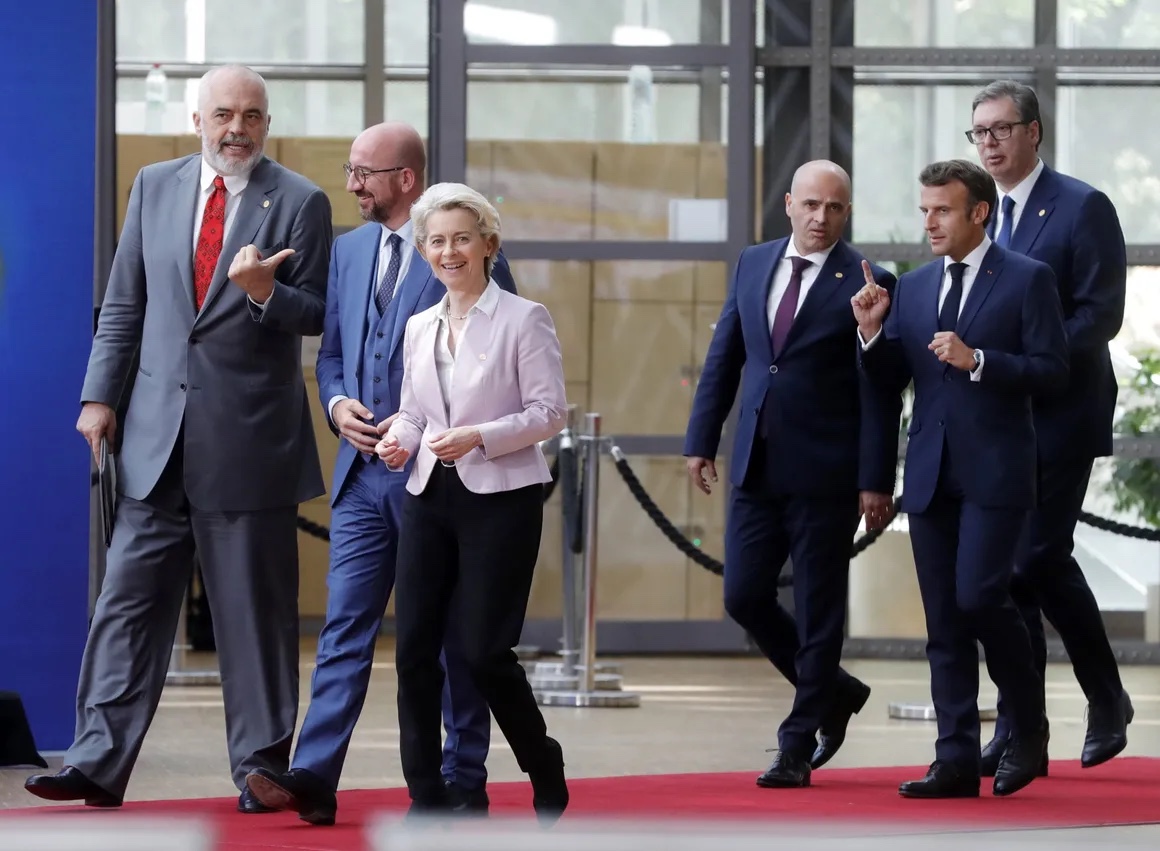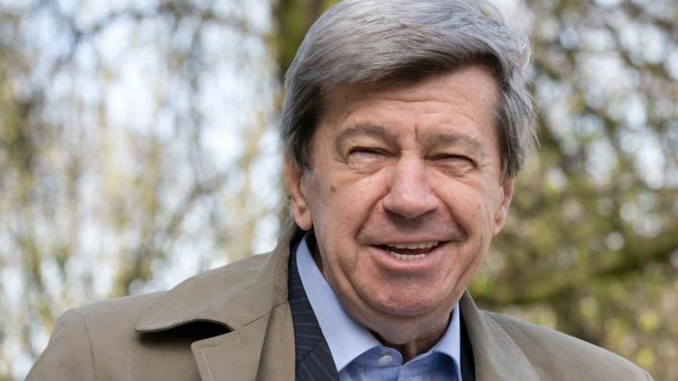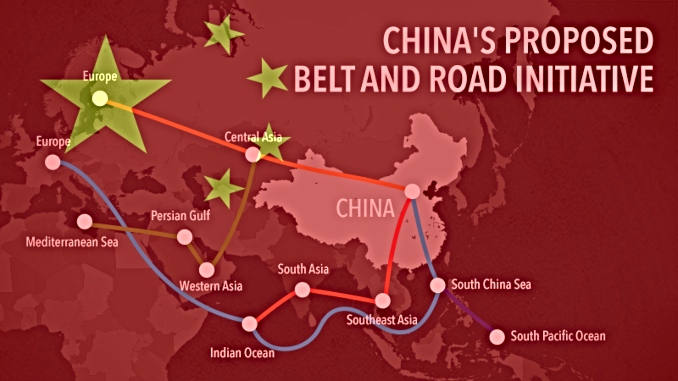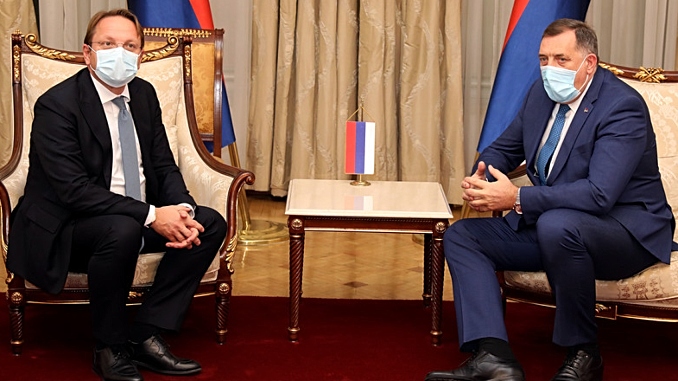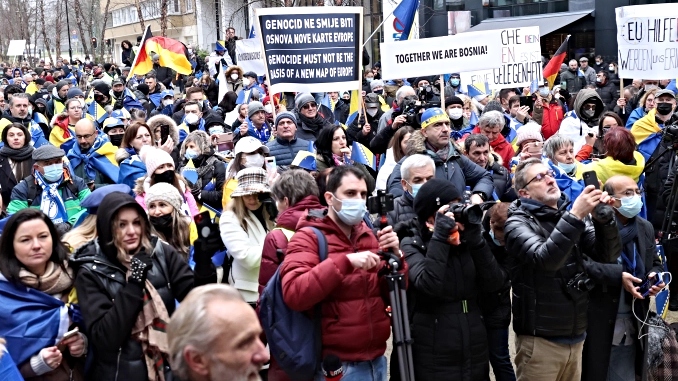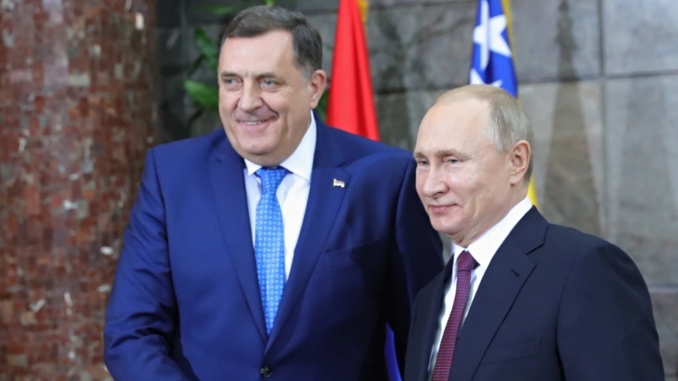Bosnia Requests Appeal in Serbia Genocide Case

Legal representatives for Bosnia have filed a politically explosive request to appeal against the 2007 International Court of Justice verdict clearing Serbia of direct responsibility for genocide during the 1992-95 war.
Bosnia and Herzegovina on Thursday filed a request for an appeal against the International Court of Justice’s 2007 verdict which cleared the Serbian state of direct responsibility for genocide in Bosnia during the 1992-95 war.
A team of legal experts led by Sakib Softic, who represented Bosnia during the original case, was seen to enter and leave the International Court of Justice building in The Hague on Thursday afternoon.However Bosnian Serb politicians strongly oppose the appeal, arguing that it is unconstitutional because it has not been approved by the state-level tripartite presidency.
Bosniak and Serb members of the country’s highest institution briefed press from opposing sides on Thursday afternoon after an extraordinary session to debate the topic broke down. The Bosniak member of the tripartite presidency, Bakir Izetbegovic, insisted the appeal for a review was not unconstitutional.
“I have been accused of causing a crisis, but it’s caused by those who have committed aggression, crimes, rehabilitated war criminals,” said Izetbegovic. “The review was launched with the aim of establishing the truth,” he added.
But the Serb member of the presidency, Mladen Ivanic, accused Izetbegovic of bypassing state institutions to file the appeal
“We have entered a serious crisis. This is the pinnacle of non-institutional activity,” Ivanic told media. “I myself do not care about the lawsuit, because I am convinced that it will soon be proven that it is not legitimate,” he added.
The political row, which has brought into focus the faultlines in Bosnia’s current power-sharing system, hinges on whether or not lawyer Softic needed the express authorisation of the country’s tripartite presidency to proceed with lodging the request for an appeal.
Meanwhile the Peace Implementation Council – a consultative body made up of international representatives who together oversee implementation of the Dayton Peace Agreement that ended the war – convened for crisis talks.
Russian ambassador Petar Ivancov was reported by local media to have instigated the meeting, having expressed concerns that an appeal against the 2007 verdict without the backing of the country’s three ‘constituent peoples’ (Bosniaks, Croats and Serbs) would be unconstitutional.
Senior Bosnian Serb officials have voiced strong opposition to the filing of the appeal at the highest level, with the president of the Bosnian Serb entity Republika Srpska Milorad Dodik condemning the move on Wednesday, backed by Serbian President Tomislav Nikolic and Prime Minister Aleksandar Vucic.
Bosnian Serb representatives also boycotted the state parliament last week, and some fear that further boycotts could render decision-making at the state level impossible and spell the collapse of the current ruling coalition.
There is also little apparent support for the action from senior Bosnian Croat officials.The original case, which was not supported by Bosnian Serb lawmakers in the mid-2000s but did have the backing of Bosnian Croat officials, ended with a ruling that genocide had occurred at Srebrenica when more than 7,000 Bosnian Muslim men and boys were massacred by Serb forces.
The court found that Serbia had failed in its duty to prevent genocide, but that there was insufficient evidence to say that Belgrade bore direct responsibility.
Source: Balkan Insight

